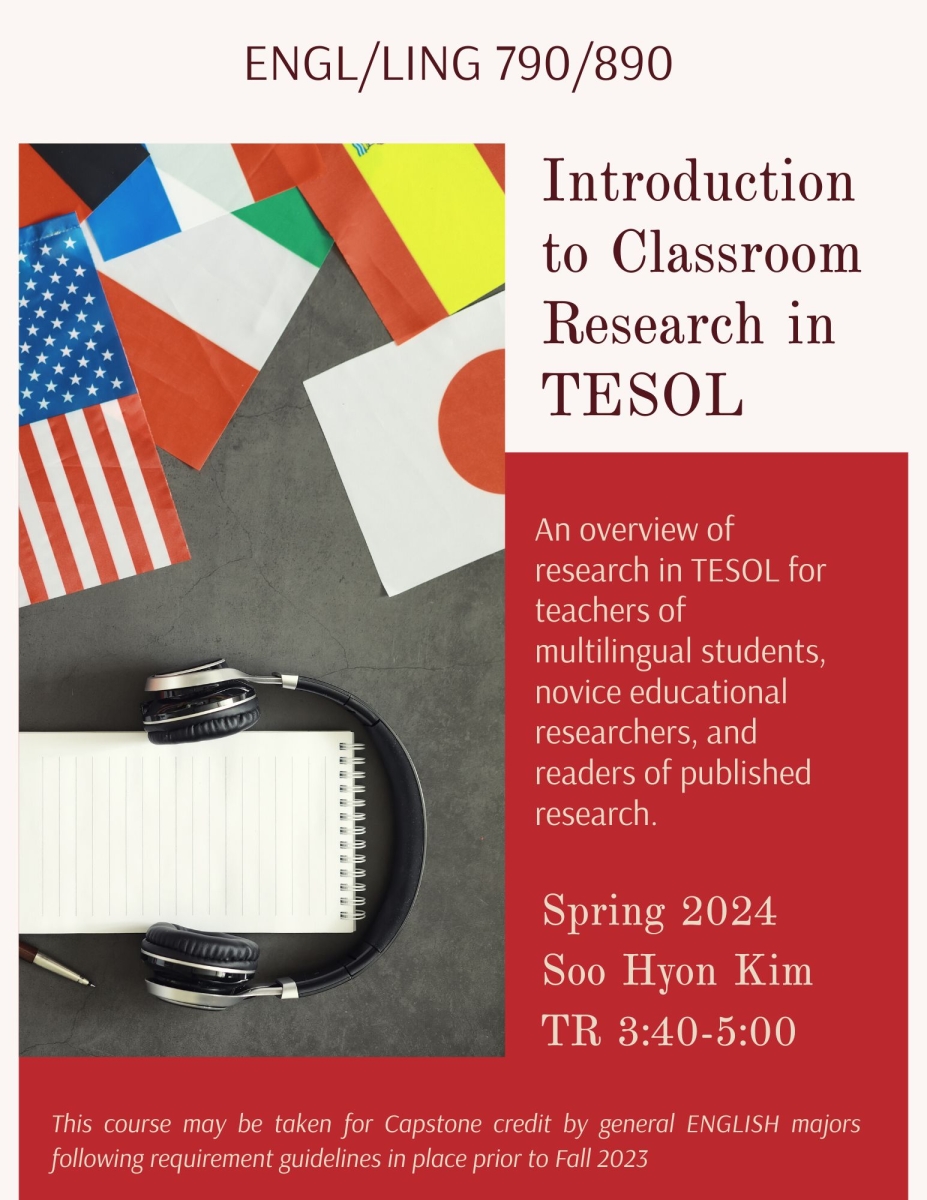Spec Top in Linguistics Theory
Times & Locations
| Start Date | End Date | Days | Time | Location |
|---|---|---|---|---|
| 1/23/2024 | 5/6/2024 | TR | 3:40pm - 5:00pm | HS 108 |
Additional Course Details:
 This course provides an overview of research in TESOL for teachers of multilingual students, novice educational researchers, and readers of published research. We will explore a number of broad areas and issues in the field of TESOL along with the various research approaches and methodologies that are used to study them. Come join an engaging community of learners from various academic backgrounds who are passionate about language learning, teaching, and research! Pre-service teachers may be interested in conducting practitioner research in their future classrooms to better serve their students, while graduate students may be preparing to write a thesis in TESOL/applied linguistics, education, or other related fields. The course will also benefit students with a general interest in language learning and teaching who would like to further explore their interests through the examination of TESOL research.
This course provides an overview of research in TESOL for teachers of multilingual students, novice educational researchers, and readers of published research. We will explore a number of broad areas and issues in the field of TESOL along with the various research approaches and methodologies that are used to study them. Come join an engaging community of learners from various academic backgrounds who are passionate about language learning, teaching, and research! Pre-service teachers may be interested in conducting practitioner research in their future classrooms to better serve their students, while graduate students may be preparing to write a thesis in TESOL/applied linguistics, education, or other related fields. The course will also benefit students with a general interest in language learning and teaching who would like to further explore their interests through the examination of TESOL research.